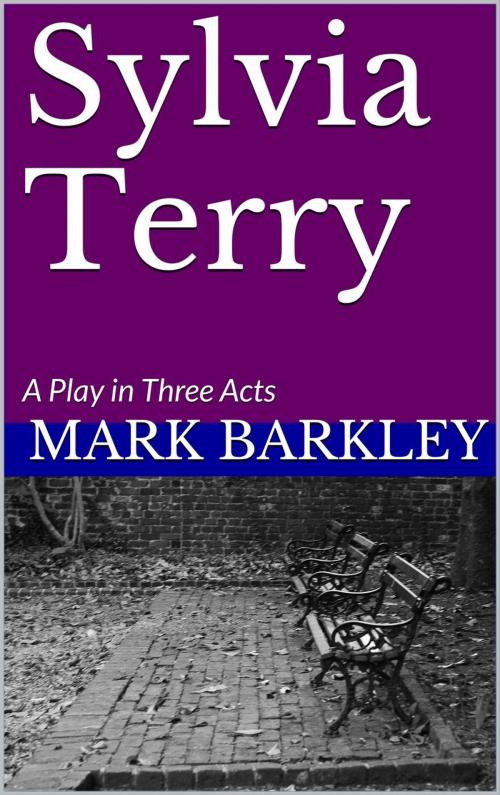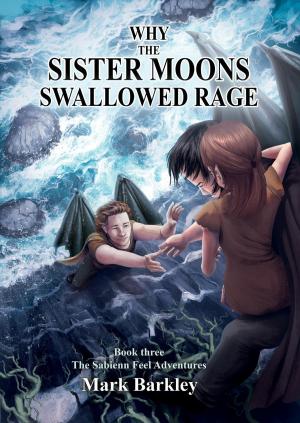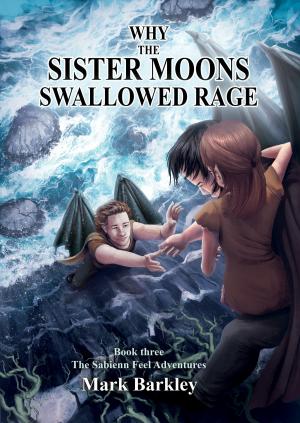| Author: | Mark Barkley | ISBN: | 9781386276548 |
| Publisher: | Mark Barkley | Publication: | May 26, 2017 |
| Imprint: | Language: | English |
| Author: | Mark Barkley |
| ISBN: | 9781386276548 |
| Publisher: | Mark Barkley |
| Publication: | May 26, 2017 |
| Imprint: | |
| Language: | English |
“His head was beaten on the side of a toilet. And I would shake the man’s hand who gripped the filth. ‘Cause there’s more justice in that man’s hand, than all the court rooms of the country.”
Sylvia and her mother Heather’s world is upended as Sylvia’s brother Neil’s has been involved in a particularly heinous crime. There is severe public reaction and disgust, and even though Heather, who as a much loved teacher, was a pillar of the community, it shows that even respected innocent bystanders can be burnt by the fire of public scandal.
Sylvia Terry enjoyed an enthusiastic reading within the 1998 Australian National Playwrights Conference in Canberra.
Interview with the Author
Q - Why should I read a stage play?
A – I think a good story is a good story. I try to reach out on an emotional level. Most people find it engaging and easy to read. And a play is just a movie in your mind.
Q – What inspired you to write Sylvia Terry?
A – Like my other plays, Goodbye Melaleuca, The Captains and The Kings, A Kind of Belgium and even Spades, I am fascinated by the dynamics within the family. This work is primarily about a mother descending into a mental breakdown and her relationship with her daughter. It involves drama, humour, conflict, betrayal, guilt and ultimately love.
It’s often written about people who commit crimes but rarely do you see a perspective of the family of the criminal who are thrust into the harsh light of public opinion. They are often good and upright pillars of the community who suffer a brick through the window as a result of what a family member has done. At the heart of this play is the story about a mother’s love for her son and a daughter’s love for her mother. The son is never seen during the work. The story is told through the eyes of four women.
The play had a number or rewrites and name changes, I think one of them being “A View within Sylvia’s Prison.” With it finished, I took an adventure down to Canberra to the 1998 Australian National Playwright’s Conference and it enjoyed a well-received reading.
Q – So, why should readers give this book a try?
A – The subject matter is a lot more serious than the stuff I’ve done before. But once again I’m trying to get an emotional connection with the reader. If you like that then I think you should give it a try.
“His head was beaten on the side of a toilet. And I would shake the man’s hand who gripped the filth. ‘Cause there’s more justice in that man’s hand, than all the court rooms of the country.”
Sylvia and her mother Heather’s world is upended as Sylvia’s brother Neil’s has been involved in a particularly heinous crime. There is severe public reaction and disgust, and even though Heather, who as a much loved teacher, was a pillar of the community, it shows that even respected innocent bystanders can be burnt by the fire of public scandal.
Sylvia Terry enjoyed an enthusiastic reading within the 1998 Australian National Playwrights Conference in Canberra.
Interview with the Author
Q - Why should I read a stage play?
A – I think a good story is a good story. I try to reach out on an emotional level. Most people find it engaging and easy to read. And a play is just a movie in your mind.
Q – What inspired you to write Sylvia Terry?
A – Like my other plays, Goodbye Melaleuca, The Captains and The Kings, A Kind of Belgium and even Spades, I am fascinated by the dynamics within the family. This work is primarily about a mother descending into a mental breakdown and her relationship with her daughter. It involves drama, humour, conflict, betrayal, guilt and ultimately love.
It’s often written about people who commit crimes but rarely do you see a perspective of the family of the criminal who are thrust into the harsh light of public opinion. They are often good and upright pillars of the community who suffer a brick through the window as a result of what a family member has done. At the heart of this play is the story about a mother’s love for her son and a daughter’s love for her mother. The son is never seen during the work. The story is told through the eyes of four women.
The play had a number or rewrites and name changes, I think one of them being “A View within Sylvia’s Prison.” With it finished, I took an adventure down to Canberra to the 1998 Australian National Playwright’s Conference and it enjoyed a well-received reading.
Q – So, why should readers give this book a try?
A – The subject matter is a lot more serious than the stuff I’ve done before. But once again I’m trying to get an emotional connection with the reader. If you like that then I think you should give it a try.















